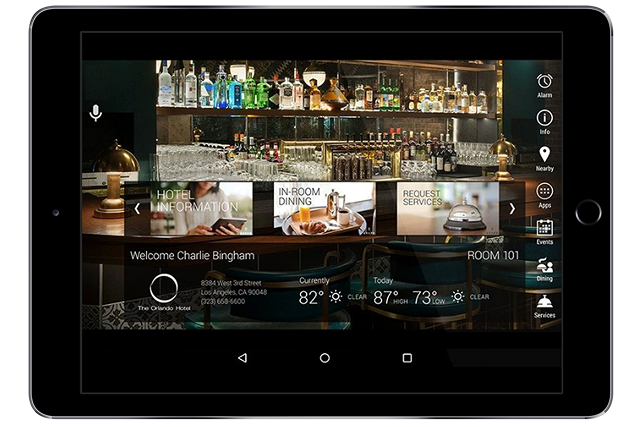By the end of 2021, the healthcare industry demonstrates openness to changes and new technological enhancements, given the great number of challenges it has to overcome.

At the same time, healthcare practitioners approach innovation differently. Some providers have already started their journey towards incorporating healthcare digital transformation trends, while others are still cautious of their applicability and effectiveness.
Anyway, tomorrow is around the corner, and the best time for smart investment in the future trends in healthcare is now. To help you take in the situation, we describe the most promising forecasts and top tech IT trends for 2022-2025 worth considering and implementing in 2021 in this post.
Future of Healthcare: Statistics
According to The 2022 Hospital Vision Study, we’ll witness the growing use of mobile devices (from 51% in 2017 to 98% in 2022 among physicians and from 42% to 96% among pharmacists) and the emergence of tech-savvy patients (with 77% of respondents feeling positive about clinicians using mobile devices in their care). In this context, the shift towards building mobile-friendly smart healthcare is on-demand for medical providers and patients alike.
This year, the most popular adoption of healthcare technologies are communication platforms, where both sides use mobile apps for secure text messaging (99%), voice conversations (98%), taking pictures of wounds and skin conditions (97%), and voice recognition detection (94%).
However, the list of potential implications is much wider. It includes streamlining hospital operations, relying on the power of data, consumerization of the industry, modernizing infrastructure, advancing care, and many other aspects. They are the basis for developing healthcare trends in 2022.
In general, life sciences remain ready for new possibilities the digital healthcare trends have been bringing since 2017. Some technologies are already widely adopted, while others are still struggling to gain the attention of healthcare practitioners. For the latter type of technologies, certain tools and enhancements have quite strong positions today to shape the nearest future of the industry.
6 Predictions on Healthcare Trends 2022
Digital transformation is the key idea behind all the healthcare IT trends appearing today. In the hospitals that have already adopted a digital-friendly culture, senior managers recognize the effectiveness of investing in technologies and decide to teach medical staff the requisite skills to use them to the maximum.
Because of that, competitiveness and effectiveness in 2022 mean not only knowing the right technologies with true value-for-money but also being ready to lead the change management and make these healthcare technology trends work for your benefit.

In this regard, Deloitte announced 6 main predictions for emerging trends in healthcare:
- People are more qualified about their health condition. The personal generic profile is no longer a secret for individuals, and they can take a proactive approach to improve their health. Numerous self-checking apps and devices make it possible.
- Move towards smart healthcare. Increased patient awareness combined with technological enhancement will change the entire healthcare culture. Because of that, healthcare trends will inevitably include the development of cost-effective patient-centric technologies that will become accessible to a great number of patients.
- Productivity-centered industrialization of healthcare. The incorporation of lean operating models results in easier fundraising and the appearance of cost-effective tools. On the existing technological basis, hospitals can deploy more enhanced tools (like AI and ML) and scale the reached productivity growth with improved compliance and greater predictability.
- Data as a new healthcare currency. The development of precision medicine and better predictions on patients’ behavior and reactions are possible thanks to AI and real-world evidence available to healthcare providers. Soon, algorithms can determine all the diagnoses and treatments, making the process free of human mistakes.
- Exponential advances in life-expanding and precision therapies. Healthcare trends will lead to P4 Medicine (as fully predictive, preventative, personalized, and participatory service) that will revolutionize healthcare. Here, innovative biotechnology is the basis for genomic-driven medicine, enlarging our understanding of possible treatment options.
- Blurred boundaries between stakeholders. The healthcare landscape will experience significant transformation because of the growing influence of non-traditional healthcare played and the raising self-awareness of patients. As a result, we’ll witness the shift towards customer-focused service, delivered through new partnerships and collaborations.
9 Key Tech Trends in Healthcare for 2022-2025
Based on the above-mentioned predictions, the most promising healthcare trends in the coming years should somehow contribute to building high-tech and patient-centered service delivery future requirements.
We’ve picked 9 most effective virtual healthcare trends for these aims:
- Telehealth
- Artificial Intelligence (AI)
- Medical chatbots
- Mobile apps
- Electronic data management
- Blockchain
- Cloud computing
- Digital supply chains
- Hyper-personalized medicine
Continue reading to get the details on these healthcare trends!
Telehealth
Telehealth technologies have already gained regular approval and clinician support. During the COVID-19 lockdown, virtual communication was a necessity, but today, it’s about to become the norm.
In essence, Telehealth technologies unite numerous software platforms that support voice calls, video conferencing, secure messaging, and comprehensive notification systems. Via online portals, users can establish constant communication with the needed amount of interactions with healthcare practitioners.
In particular, biotelemetry is capable of delivering remote check-ups and patient monitoring. This way, Telehealth as one of the healthcare trends for 2022-2025 saves time and resources for doctors and increases patient engagement. People now can get health-critical medical services in the comfort of their homes.
In the near future, these e-visits will be supplemented with all the necessary components, including using diagnostic tools, making physical examinations, and providing actionable treatment plans. And all this comes without the common inconveniences of traveling to the hospital and losing time in a waiting line.
Artificial Intelligence (AI)
Together with Robotic Process Automation (RPA), AI establishes the foundation for smart healthcare culture that solves numerous current pain points. The typical areas of AI applications include activities coordination, workflow optimization, doctors’ time management, and paperless documentation.
Moreover, the innovation increases collaborativeness among separate departments, helping doctors, data scientists and bio-scientists deliver patient-centered, accurate, and innovative services together.
As the key enhancement for healthcare organizations, AI algorithms improve the quality and delivery of disease diagnoses, being capable of mining medical records, scanning diagnostic tests results, and augmenting the role of radiologists. This way, the technology enables analyzing and acting upon vast amounts of data that the human brain cannot process fully.
The current applications of AI healthcare trends include:
- AI-assisted robotic surgery, where robots analyze information from medical records to guide surgeons during complex operations
- AI-powered virtual assistants that interact with patients on doctors’ behalf
- Automation of clinical management and workflow
- Medical diagnosis software
- Clinical trial participant identification
- Faster drug discovery and development in the pharma sphere
- Apps for preventing dosage errors
- Brain-computer interfaces that adopt AI for treating brain-related disabilities
Medical Chatbots
As an AI-empowered technology, a medical chatbot is a digital tool that resolves specific industry-related issues, automates healthcare processes, and enhances overall performance. In particular, chatbots collect, digitalize, and encrypt the patient data, assist in refilling and monitoring, provide informational support on requests, schedule appointments, and ensure medical assistance.
Due to its rich functionality for an affordable development cost, medical chatbot technology is about to become a must-have tool faster than other healthcare trends reviewed here.
The main features of a highly efficient medical chatbot are:
- Anonymity, meaning security and comfort of the patient data sharing
- Easy-to-use monitoring tools and templates
- High personalization by using the information on physical indicators and patient behavior
- Real-time interaction
- Scalability
Healthcare practitioners can benefit from this technology with reduced response time, an ability to handle an unlimited number of users and provide accurate medical advice, and an easier scheduling process with automatic reminders and useful templates.
Mobile Apps
Developing a mobile app brings numerous advantages for hospitals, including the rise of client loyalty, increasing the accuracy of patient data, and improving compliance management. Once requested from a reliable vendor, a custom mobile app solution can handle numerous patient-related processes, especially in terms of experience personalization and remote patient monitoring.
Besides, mobile apps are among the most popular trends in healthcare that increase accessibility to medical services on a large scale. When the entire hospital is always available on a smartphone, even people getting in distant areas can get the needed help fast.
Healthcare practitioners requesting mobile app development should check the presence of these features in their solution:
- Secure electronic patients data
- Categorized list of diagnoses
- Treatment protocol templates
- In-app notifications for sending reminders to patients
- Ability to process payments through secure payment getaway
- Online support
- HIPAA-compliant videoconferencing
- Scheduling appointments
- Integration with wearables
Electronic Data Management
Generally, the incorporation of technological healthcare trends lets medical providers significantly improve the accuracy of treatments and their overall productivity.
With a centralized database working with Big Data, it’s also much easier for them to track and maintain patient information. Many hospitals have already experienced the basic benefits of digital medical records, which drives the enhancement of electronic data management further.
More enhanced tools to collect patient data appear. For example, natural language processing (NLP) makes automated writing possible, which leads to the better structurization of information and easier repurposing of the existing narratives for diagnoses and treatment plans.
Even more, the integration of an internal hospital database with third-party data collected from wearables, reports, and authoritative sources unlocks the opportunity to create highly detailed and personalized patient and doctor profiles. This way, the technology brings more transparency and trust in the relations between healthcare providers and the wide patient population.
In general, electronic health data fuels financial and clinical success, being a necessary prerequisite for predictive analytics, real-time clinical support, precision medicine, and proactive treatment.
For future technology adoption, the presence of data scientists in medical institutions is inevitable, as these digital-savvy team members with multidisciplinary expertise will make the change for innovation faster and more efficient. Precisely, they should teach doctors to use analytics so that the investment in electronic records will bring the maximum value.
Blockchain
For the future of digital transformation, safety is a top concern. In this context, as one of the top trends in healthcare, blockchain contributes to the security of data linkages and the overall privacy of electronic information. In particular, the technology provides the needed protection for patient data for effective and safe data-sharing within healthcare organizations.
Even more, many industries and governments collaborate currently on introducing effective regulations and separate “data lakes,” where blockchain is the key technology for ensuring strong ecosystem safety.
Also, blockchain affects the cost of healthcare, successfully handling an overwhelming amount of duplicated data that causes additional storage expenses. In this regard, smart contracts help to eliminate inconsistency with hospital rules and governmental regulations. Being self-executable, they automate the process without the need for management and control.
For healthcare providers, our recommendation for blockchain deployment is to choose the BaaS model and introduce multiple partners, including non-traditional healthcare players, to collaborate on the network building.
Cloud Computing
Migrating data to the cloud is among the leading trends in healthcare and other industries. For the healthcare future, cloud computing serves the mission of data management optimization for a reduced cost. Also, it contributes to establishing a self-sufficient health ecosystem.
The list of benefits cloud computing brings to hospitals includes:
- Ability to draw intelligent insights from data
- Tools for risk mitigation
- Access to the widest perspective possible
- Big Data analytics
- Greater accuracy in decision-making and treatments
- Increased flexibility in reacting to the industry needs
- Transparency of health information
- Cost-effectiveness
On a larger scale, with cloud-based systems, companies can talk to each other and introduce regulators to track their key operations. This way, the technology provides the basis for establishing smart health care communities and digital supply chains, which are one of the most promising healthcare IT trends in 2022-2025.
Digital Supply Chains
Digital transformation will scale in 2022, meaning that technologies will support not only separate activities but entire supply chains. In this regard, the growing popularity of supply chain management software types and cognitive automation tools is remarkable. These healthcare trends can manage huge amounts of data, provide actionable recommendations, and unite all the activities, devices, and software types within and around the hospital under a single digital platform.
In the near future, hospitals will automate numerous standardized processes and use the tools of predictive analytics to conduct market research, forecast demand, and improve the consistency and impact of their services.
For healthcare providers, this trend is beneficial as a driver for productivity growth and decision-making optimization. To achieve these results, the cognitive automation platforms offer an integrated and always-available experience for all the key managers, provide transparent data-driven logic, are flexible in adapting to internal and external changes, possess human-like intelligence, and are designed to be scalable. This way, digital supply chains in healthcare can achieve full agility and increase decision accuracy.
Hyper-Personalized Medicine
As one of the most promising healthcare trends, hyper-personalized medicine is capable of curing diseases that are commonly labeled as “helpless.” In essence, it is the set of digital tools that can work with inherited genetic disorders through making novel drugs.
This treatment is tailored to people’s genes, providing the necessary changes in their structure. The potential of hyper-personalized medicine is already acknowledged by the U.S. government, as it’s expected to receive $3.18 trillion by 2025.
In a broader sense, hyper-personalized medicine means repairing DNAs through genome sequencing and CRISPR engineering methods. This way, the innovation can stabilize the health of patients with genetic mutations, provide timely identification of critical diseases, and personalize the recommendations for healthier lifestyle and treatment plans.
The ability to cure rare diseases is an evident advantage for healthcare practitioners. In the near future, hyper-personalized medicine is about to become more affordable and widespread. In any case, this is a unique tool to help patients struggling with rare disorders today.

How Intellectsoft Can Help you Implement Any Healthcare Technology
Intellectsoft is a leading software development company in the world that unites engineers who possess time-proven expertise in delivering digital solutions for healthcare needs.
Working with Healthcare 4.0 insights-driven approach, we can assist medical providers with automation tools for improving operations efficiency, innovating the existing products, and modernizing the entire infrastructure for a considerable cost.
Here is the list of our healthcare IT solutions and services you can request right now:
- Hospital information systems
- Data engines
- Internet of Medical Things
- Remote medical care
- Health awareness
- Electronic health record
For more details and custom solutions empowered by other technologies, reach our team directly. Let’s build the future of healthcare together!








